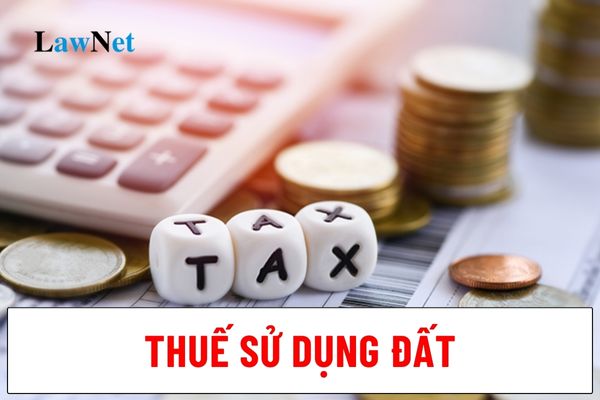Which entity is non-agricultural land use taxpayer in Vietnam?
Which entity is non-agricultural land use taxpayer in Vietnam?
According to Article 2 of the 2010 Law on Non-Agricultural Land Use Tax, the subjects liable to pay non-agricultural land use tax include:
- Residential land in rural areas, homestead land in urban areas.
- Land used for non-agricultural production and business, including: land for industrial park construction; land used as premises for production and business establishments; land for mineral exploitation and processing; land for production of building materials and ceramics.
- Non-agricultural land specified in Article 3 of this Law used for business purposes.
Additionally, the subjects exempt from non-agricultural land use tax are non-agricultural lands not used for business purposes, including:
- Land used for public purposes, including: land for transportation, irrigation; land for the construction of cultural, healthcare, education and training, sports facilities serving public interests; land with historical-cultural relics, scenic spots; land for other public works as prescribed by the Government of Vietnam;
- Land used by religious institutions;
- Land for cemeteries and graveyards;
- Rivers, canals, ditches, streams and specialized water surfaces;
- Land with structures such as communal houses, temples, shrines, pagodas, ancestral worship houses, family worship churches;
- Land for building offices, constructing public service works, land used for national defense and security purposes;
- Other non-agricultural land as prescribed by law.

Which entity is non-agricultural land use taxpayer in Vietnam? (Image from the Internet)
Who is liable to pay non-agricultural land use tax in case where a person with land use rights leases the land under a contract in Vietnam?
According to the provisions of Article 4 of the 2010 Law on Non-Agricultural Land Use Tax as follows:
Taxpayer
1. The taxpayer is an organization, household, or individual with the right to use land subject to tax under Article 2 of this Law.
2. In case an organization, household, or individual has not yet been granted a Certificate of land use rights, ownership of houses and other assets attached to the land (hereinafter collectively referred to as the Certificate), the person currently using the land shall be the taxpayer.
3. The taxpayer in certain specific cases is provided as follows:
a) In the case where the State leases land for the implementation of investment projects, the lessee of the homestead land is the taxpayer;
b) In the case where a person with land use rights leases the land under a contract, the taxpayer is determined according to the agreement in the contract. If the contract does not include an agreement on the taxpayer, the person with land use rights is the taxpayer;
c) In case the land has been granted a Certificate but is under dispute, before the dispute is resolved, the person currently using the land is the taxpayer. The payment of tax is not a basis for resolving disputes over land use rights;
d) In case several people jointly have land use rights to a parcel, the taxpayer is the legal representative of those jointly holding the land use rights to that parcel;
đ) In case a person with land use rights contributes business capital in the form of land use rights, forming a new legal entity with land use rights subject to tax under Article 2 of this Law, the new legal entity is the taxpayer.
Thus, the taxpayer for non-agricultural land use tax is determined according to the agreement in the contract in the case where the person with land use rights leases the land under a contract.
How to calculate taxable value of non-agricultural land use in Vietnam?
According to Article 6 of the 2010 Law on Non-Agricultural Land Use Tax, the taxable value of non-agricultural land use is determined as follows:
- The taxable value for land is determined by the area of taxable land multiplied by the price of 1m² of land.
- The taxable land area is regulated as follows:
+ The taxable land area is the actual area of land used.
In the case of multiple parcels of residential land, the taxable land area is the total area of the taxable parcels.
In the case of land allocated or leased by the State for the construction of industrial parks, the taxable area does not include the area used for the construction of common infrastructure;
+ For multi-story, multi-family houses, and condominiums, including those used partly for residential and partly for business purposes, the taxable land area is determined by the allocation coefficient multiplied by the area of the house used by each organization, household, or individual.
The allocation coefficient is determined by the area of land for constructing multi-story, multi-family houses, condos divided by the total area of the houses used by the organizations, households, and individuals.
In the case of multi-story, multi-family houses, and condos with basements, 50% of the basement area used by organizations, households, and individuals in the basement is added to the house area of the organizations, households, and individuals for calculating the allocation coefficient;
+ For underground constructions, the allocation coefficient equals 0.5 times the area of land used for construction divided by the total area of the underground constructions used by the organizations, households, and individuals.
- The price of 1m² of land is the land price according to the land price table corresponding to the purpose of use and is stabilized every 5 years.

